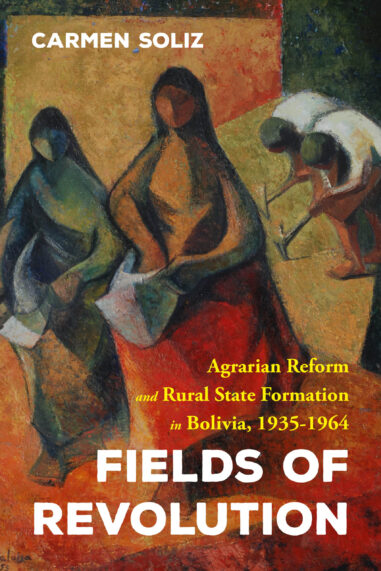
Hardcover $55.00
Request Exam or Desk Copy. Request Review Copy
Fields of Revolution
Agrarian Reform and Rural State Formation in Bolivia, 1935-1964
Provides several new insights into the relations between the peasantry and the state prior to and following Bolivia’s National Revolution . . . The book should be read not just by historians of twentieth-century Bolivia (as well as those with a wider interest in the history of peasant politics and the state in Latin America) but also by anyone who wishes to better understand the centrality of the peasantry to contemporary Bolivian politics.

